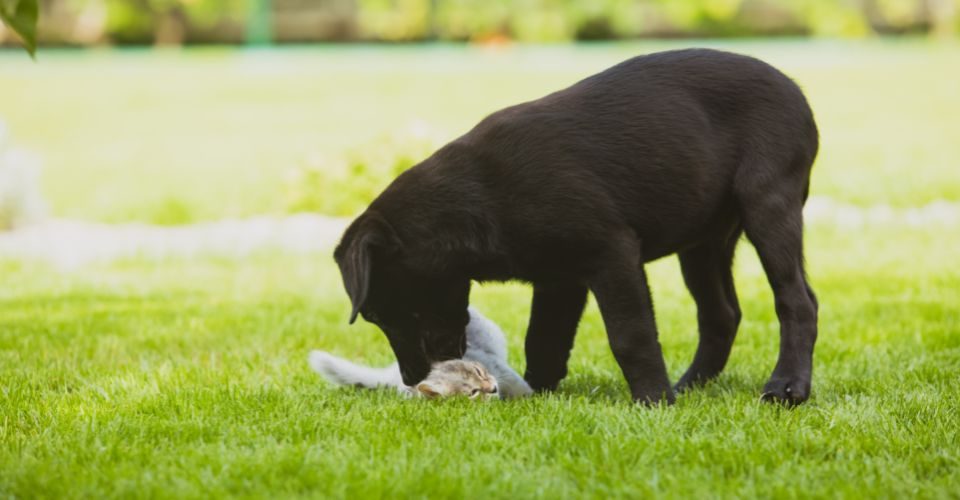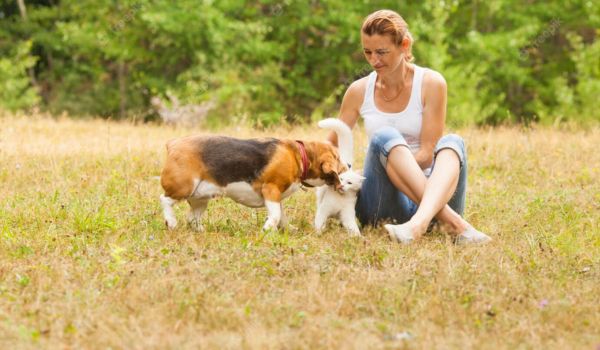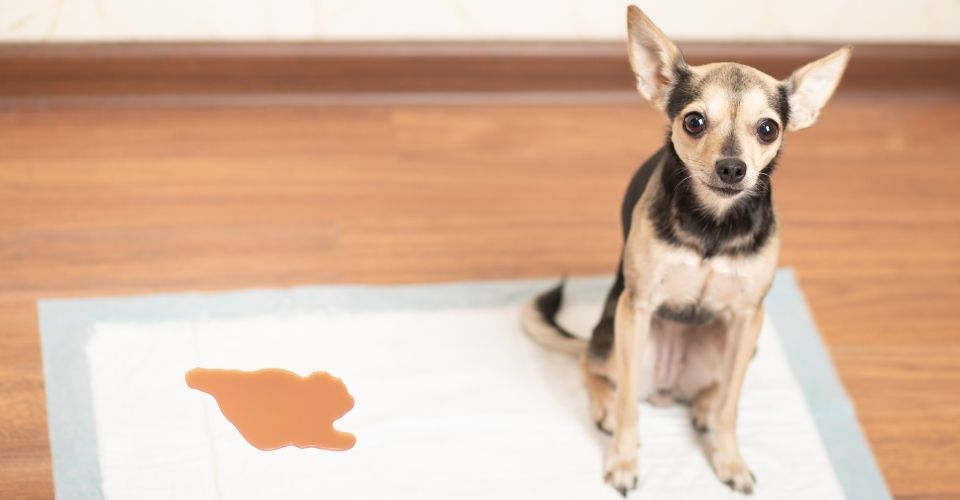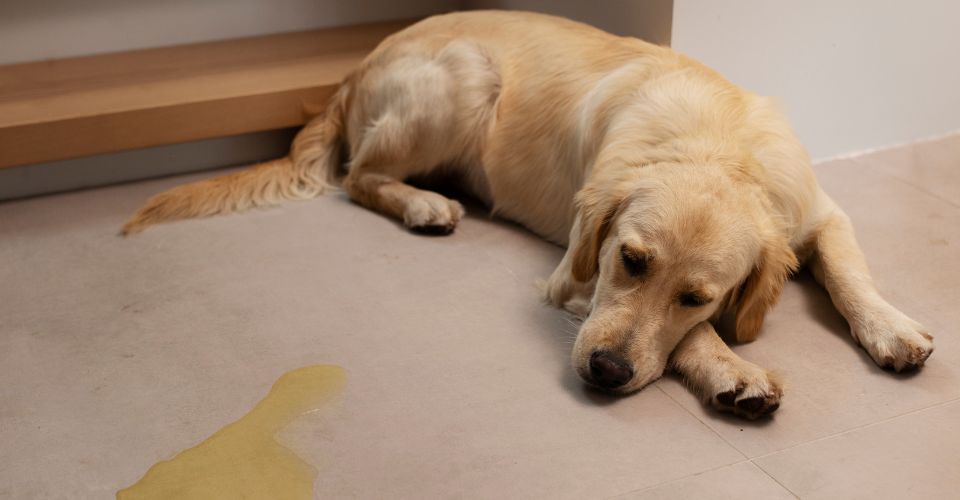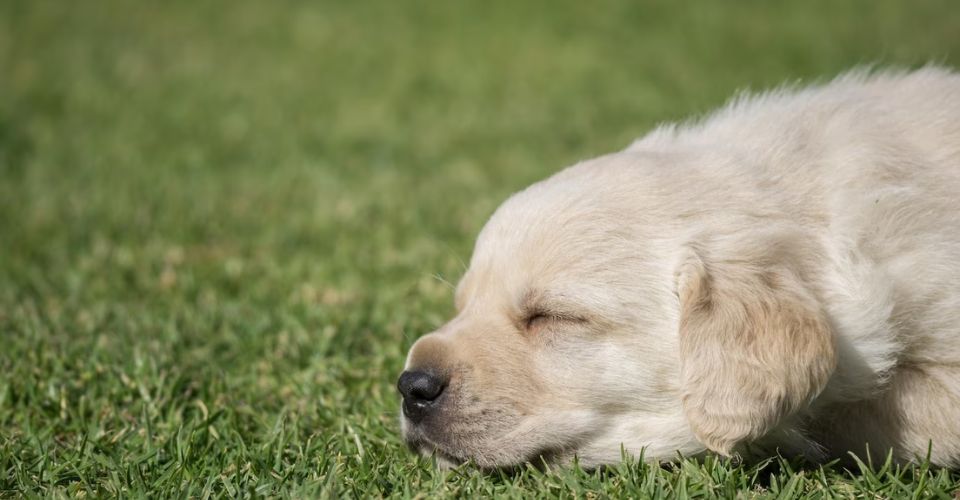Why does my dog nibble on my cat? It is a question that many pet owners have asked themselves at one point or another. While it may seem strange, there are several reasons why your furry friend might be nibbling on your feline companion.
In this blog post, we will explore some of the common reasons why dogs nibble on cats and what you can do to prevent or manage this weird behavior. So, if you are curious about why your dog is nibbling on your cat, keep reading to find out!
Nibbling vs. Biting
Nibbling and biting are two different behaviors that dogs can exhibit, and it is important to understand the difference between the two.
Nibbling is a gentle and playful behavior where the dog may use its mouth to lightly and repeatedly nip or lick another animal or object. It is a way of showing affection, playfulness, or communication.
On the other hand, biting is a more aggressive behavior where a dog may clamp down on an animal or object with its teeth with force. This can cause injury or harm to the other animal or object, especially if the dog belongs to any of the breeds with strong bite force. Biting can be a sign of aggression, fear, or defense and should be taken seriously.
Why Does My Dog Nibble on My Cat?
1. Grooming
It may not necessarily be a sign of aggression if you notice your dog nibbling on your cat. Rather, it could be a form of grooming behavior. Grooming is a way for dogs and cats to keep clean, but it also helps to strengthen their bond. Mutual grooming is a behavior commonly observed between dogs and cats and between animals of the same species.
When your dog nibbles on your cat, it is often accompanied by licking, either over the entire body or just around the head and neck area. This behavior is a sign of affection and social bonding, and it is nothing to be worried about as long as it does not escalate into more aggressive behavior.
2. Playfulness
Your dog nibbling on your cat more vigorously or even grabbing the cat lightly with its mouth could be a sign of playfulness. Both dogs and cats use their mouths when playing, and nibbling and biting are common playful behaviors. As long as the dog is gentle and the cat does not seem stressed or fearful, it will likely engage in a playful wrestling match.
In fact, you might even see the cat reciprocate by nibbling or lightly biting back at the dog. However, monitoring their play and ensuring it does not become too rough or aggressive is important. If you are unsure whether their behavior is playful or not, it is always a good idea to consult with a veterinarian or animal behaviorist.
3. Teething
Teething is a common reason why dogs may nibble on various objects, including cats. When puppies are teething, their gums become sore and itchy, and chewing helps to relieve the discomfort. As a result, they may start to chew on anything within their reach, including other pets or household items.
If your puppy is going through the teething phase, you may notice them nibbling on your cat more frequently. However, it is important to note that teething nibbling is typically gentle and does not involve aggressive biting. If your dog’s nibbling behavior seems rough or intense, it is best to intervene and redirect their attention toward appropriate chew toys.
4. Stress
Dogs suffering from anxiety may display their stress by lightly nibbling on objects, people, or even other animals like cats. Depending on the dog’s anxiety levels, the nibbling can be either light or more intense.
While your dog is nibbling on your cat, you might also notice other signs of stress, such as wide eyes or ears that are pulled back and down. Excessive nibbling can cause issues with the cat’s fur and skin and can also be annoying to the cat. If you suspect that anxiety is causing your dog’s increased nibbling, it is best to consult with a veterinarian to explore potential underlying causes and treatments. Addressing the anxiety issue can help improve your dog’s behavior towards your cat.
5. Communication
Nibbling or gentle biting can be a way for dogs to communicate with other animals, including cats. For example, dogs may nibble on cats to initiate play or signal that they want attention or affection. Similarly, a cat may nibble on a dog to communicate a message or establish boundaries. However, it is important to note that excessive nibbling or biting can be a sign of aggression. Therefore, monitoring your dog’s behavior and intervening if the nibbling becomes too rough or intense is crucial.
Is It Okay for a Dog to Nibble on a Cat?
Dog nibbling on a cat is a common sight, but whether it is okay or not depends on the context and the intensity of the nibbling. If the nibbling is gentle and the cat seems comfortable and not distressed, it is likely just a form of play or communication between the two animals. However, if the nibbling becomes more intense or the cat shows signs of stress, such as flattened ears or wide eyes, it may be a cause for concern.
How to Prevent a Dog From Nibbling on a Cat?
1. Separation
Separating the two pets when you cannot supervise their interactions can effectively prevent nibbling incidents. This can be done by keeping them in separate rooms or using baby gates to create physical barriers between them. Providing each pet with its own space, such as a crate or bed, can also help prevent unwanted interactions and reduce stress.
2. Using a Carrier
Use this technique to place your cat in a protective carrier while the dog is in another room. Provide a toy to help keep the cat calm. Bring the dog into the room and offer its favorite treats or chew toys to keep it focused on you and reward calm behavior. Practice obedience commands, such as sit or stay, that your dog knows very well and reward it for obeying.
Offer the best treats for moving away from the cat. The idea is to teach your dog that it gets better attention and rewards by ignoring the cat rather than nibbling it. Over time, your dog should learn to associate the presence of the cat with positive experiences and rewards and be less likely to nibble on the cat.
3. Monitoring the Behavior
Redirecting your dog’s behavior is an effective way to prevent nibbling on your cat. If you notice early signs of aggressive behavior towards your cat, redirect your dog’s attention immediately. When you catch your dog trying to nibble or chase your cat, say “no” and put it in a separate room for a few minutes. As soon as your dog looks away from your cat, praise and reward its calm behavior with treats.
Make sure your cat has a way to escape from your dog, such as using cat trees, tall furniture, and cat shelves as escape routes. Redirecting your dog’s behavior and rewarding it for calm behavior will help it learn to interact appropriately with your cat.
4. Like-Minded Pets
If you have not adopted a cat or dog yet, it is important to consider the personalities of the animals you plan to bring into your home. Some dogs have a high prey drive and may not be suitable for living with a cat. An energetic and playful cat may do well with a playful dog, provided that they do not view each other as competition or prey.
An older, more relaxed cat may be better suited to living with an older dog. It is important not to force two animals with incompatible personalities to live together, as this can lead to tension and aggression. You can help ensure peaceful and harmonious coexistence between your pets by matching personalities.
Conclusion
If you are wondering why your dog nibbles on your cat, it is likely due to a variety of reasons, such as grooming, playfulness, teething, stress, or communication. Monitoring their behavior and ensuring that the nibbling remains gentle and playful rather than becoming too rough or aggressive is important.
If you suspect that anxiety or other underlying issues may be causing your dog’s nibbling behavior, it is best to consult with a veterinarian or animal behaviorist. Separation, using a carrier, or providing each pet with its own space can be effective ways to prevent unwanted interactions and reduce stress. By understanding your pets’ behaviors and taking the necessary steps to manage their interactions, you can ensure that your cat and dog live together in harmony.

